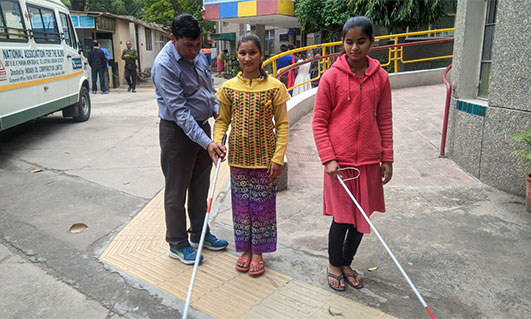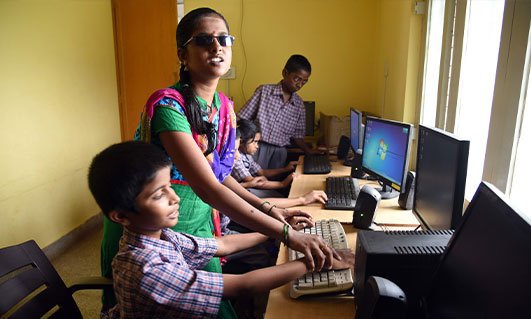
Overcoming challenges in daily life as a blind person
Living with visual impairment presents unique challenges, but it doesn’t mean a blind person cannot lead a fulfilling and independent life. Every day, individuals with visual impairments face various obstacles and work to overcome them with resilience, adaptability, and assistive technology. In this blog, we will explore some of the common challenges faced by blind people in their daily lives and discuss strategies and resources that can help them navigate these hurdles with confidence.
Accessible Technology:
In today’s digital age, technology plays a crucial role in empowering blind individuals. Accessible devices and software such as screen readers, braille displays, and voice assistants enable blind people to access information, communicate, and perform tasks independently. Embracing and mastering these technologies can significantly enhance daily life by providing access to education, employment opportunities, social connections, and entertainment.
Orientation and Mobility:
Navigating the physical world can be a major challenge for blind individuals. Developing effective orientation and mobility skills is essential for independence. Orientation techniques, such as using a white cane or guide dog, help blind individuals detect obstacles, locate landmarks, and navigate unfamiliar environments. Learning to use public transportation systems or utilizing ride-sharing apps with accessible features are also key skills for travel and commuting.
Household Tasks and Organization:
Performing household chores can be demanding for blind individuals, but with the right techniques and tools, they can maintain a well-organized and functional living space. Labeling items in braille or using tactile markers can help with identifying and distinguishing between different objects. Learning adaptive cooking techniques, organizing belongings with tactile systems, and utilizing assistive technologies like talking thermometers and talking clocks can greatly simplify daily tasks.
Employment and Education:
Blind individuals often face unique challenges in pursuing education and finding employment. However, with the right accommodations and support, they can excel in various fields. Accessible educational materials, such as braille textbooks or digital resources, and assistive technologies can facilitate learning. Workplace accommodations, including screen magnifiers, screen readers, and accessible formats of documents, enable blind individuals to thrive in professional environments.
Social Inclusion:
Blind individuals may encounter social barriers and misconceptions that can hinder their participation in social activities. Educating others about blindness and promoting inclusivity is crucial. Encouraging open communication, providing accessibility information about events or venues, and fostering inclusive attitudes can help blind individuals feel welcome and actively participate in social gatherings, sports, cultural events, and hobbies.
Conclusion:

While living with blindness presents unique challenges, individuals with visual impairments can overcome them and lead fulfilling lives. By embracing accessible technology, developing orientation and mobility skills, mastering household tasks, accessing education and employment opportunities, and promoting social inclusion, blind individuals can navigate daily challenges with confidence and independence. It is essential for society to recognize the abilities and potential of blind individuals and work towards creating inclusive environments that support their diverse needs.